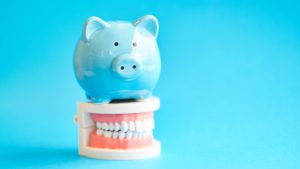What Is Dental Bonding? 
Dental bonding (also known as cosmetic bonding) is a minimally invasive cosmetic dental procedure where a tooth-colored composite resin material is applied to the tooth surface. The bonding agent adheres to the enamel, and the resin is shaped, hardened with an ultraviolet light, and polished to look like natural teeth.
This cosmetic dental bonding process can correct:
- Chipped or cracked teeth
- Discolored tooth surfaces
- Small gaps between teeth
- Minor misaligned teeth
- Uneven tooth enamel
- Worn edges or sharp edges
Unlike dental veneers, which often require enamel removal, bonding usually involves minimal tooth preparation and can often be completed in just one appointment.
How Much Does Dental Bonding Cost in Honolulu?
The cost of dental bonding in Honolulu varies depending on the complexity of your case, how many teeth are treated, and your dentist’s expertise. On average:
- Dental bonding cost per tooth: $250 – $600
- More complex cases: Up to $1,000 per tooth
- Composite bonding vs veneers: Bonding is generally more affordable than porcelain veneers, making it a cost-effective cosmetic procedure
While less expensive than other cosmetic dental treatments, bonding still delivers excellent results when performed by an experienced cosmetic dentist like Dr. Nishime.
Factors That Affect Bonding Costs
Your bonding cost may vary depending on several factors, including:
- Number of teeth – Treating multiple teeth naturally costs more than bonding just one.
- Extent of cosmetic concerns – A discolored tooth may cost less to correct than repairing decayed teeth or misaligned teeth.
- Tooth location – Front teeth often require more artistry to blend with surrounding teeth, which may influence cost.
- Other cosmetic procedures – Sometimes bonding is performed along with professional teeth whitening or dental veneers.
- Dentist’s experience – A highly skilled cosmetic dentist can deliver natural-looking results with longer-lasting outcomes.
 Does Dental Insurance Cover Bonding?
Does Dental Insurance Cover Bonding?
Coverage depends on your dental insurance provider and whether bonding is classified as a cosmetic procedure or a restorative treatment.
- Most dental insurance plans do not fully cover bonding if it’s only for cosmetic reasons.
- If bonding is needed to repair decayed teeth or protect tooth structure from further damage, partial coverage may apply.
- Patients can also use payment plans or financing to manage costs more comfortably.
At Advanced Restorative Dentistry, we’ll check your insurance plans and provide clear guidance on whether your bonding procedure will be covered.
Why Choose Dental Bonding?
Many patients choose teeth bonding because it is:
- Affordable: Less costly than veneers or other cosmetic dental procedures
- Quick: Usually completed in just one appointment
- Minimally Invasive: Requires little to no enamel removal
- Effective: Restores natural appearance to bonded teeth
- Versatile: Corrects many cosmetic concerns at once
Bonding offers patients a way to achieve a perfect smile without the need for major dental work.
The Dental Bonding Procedure
Here’s what happens during a cosmetic dental bonding appointment at our Honolulu dental office:
- Preparation – Your dentist examines the tooth, checking for dental issues like gum disease or tooth decay first.
- Bonding process – The tooth surface is cleaned and lightly etched with an etching solution to help the bonding material stick.
- Application – Composite resin is applied, shaped, and color-matched to your natural teeth.
- Hardening – A special light cures the resin so it bonds securely to the tooth.
- Polishing – The tooth is polished for a natural appearance that blends with your smile.
The entire process is painless and can usually be completed in just one appointment.
Caring for Bonded Teeth
To make your bonding investment last, follow these tips:
- Practice good oral hygiene practices (brushing and flossing daily)
- Visit your dentist for regular dental visits and professional teeth cleanings
- Avoid high staining foods (coffee, red wine, tobacco)
- Use non-abrasive toothpaste and a soft-bristle toothbrush
- Don’t bite hard foods or objects with bonded teeth
With proper care, bonding can last 5–10 years before touch-ups may be needed.
 Cost of Dental Bonding vs Other Cosmetic Procedures
Cost of Dental Bonding vs Other Cosmetic Procedures
Patients often ask whether bonding is better than other treatments. Here’s how it compares:
- Porcelain veneers: Longer-lasting but higher cost; usually requires enamel removal.
- Teeth whitening: Effective for stains but won’t fix chipped teeth or gaps.
- Dental crowns: Stronger than bonding but involve more tooth preparation and higher costs.
For patients with minor cosmetic concerns, bonding offers a cost-effective procedure that provides natural-looking results quickly.
Frequently Asked Questions
The average cost of dental bonding ranges from $250 to $600 per tooth, though more complex cases may cost up to $1,000. The final cost depends on how many teeth are treated and the complexity of the procedure.
The lifespan of dental bonding depends on various factors such as oral hygiene, eating habits, and the location of the bonded tooth. With proper care, bonding can last for several years before requiring touch-ups or replacements.
Most dental insurance plans don’t cover bonding for purely cosmetic purposes. However, if bonding is used to treat decayed teeth or protect an affected tooth, partial coverage may be available.
Restore Your Smile with Dental Bonding in Honolulu
If you’ve been wondering “How much does dental bonding cost in Honolulu?”, the team at Advanced Restorative Dentistry is here to help. Our cosmetic dentist in Honolulu provides high-quality cosmetic dental bonding to restore your confidence and give you a perfect smile.
Call (808) 732-0291 today to schedule your consultation and learn more about bonding costs, financing options, and treatment plans. We proudly serve patients in Honolulu, Waikiki, Manoa, and the surrounding Oahu communities.


 Does Dental Insurance Cover Bonding?
Does Dental Insurance Cover Bonding? Cost of Dental Bonding vs Other Cosmetic Procedures
Cost of Dental Bonding vs Other Cosmetic Procedures